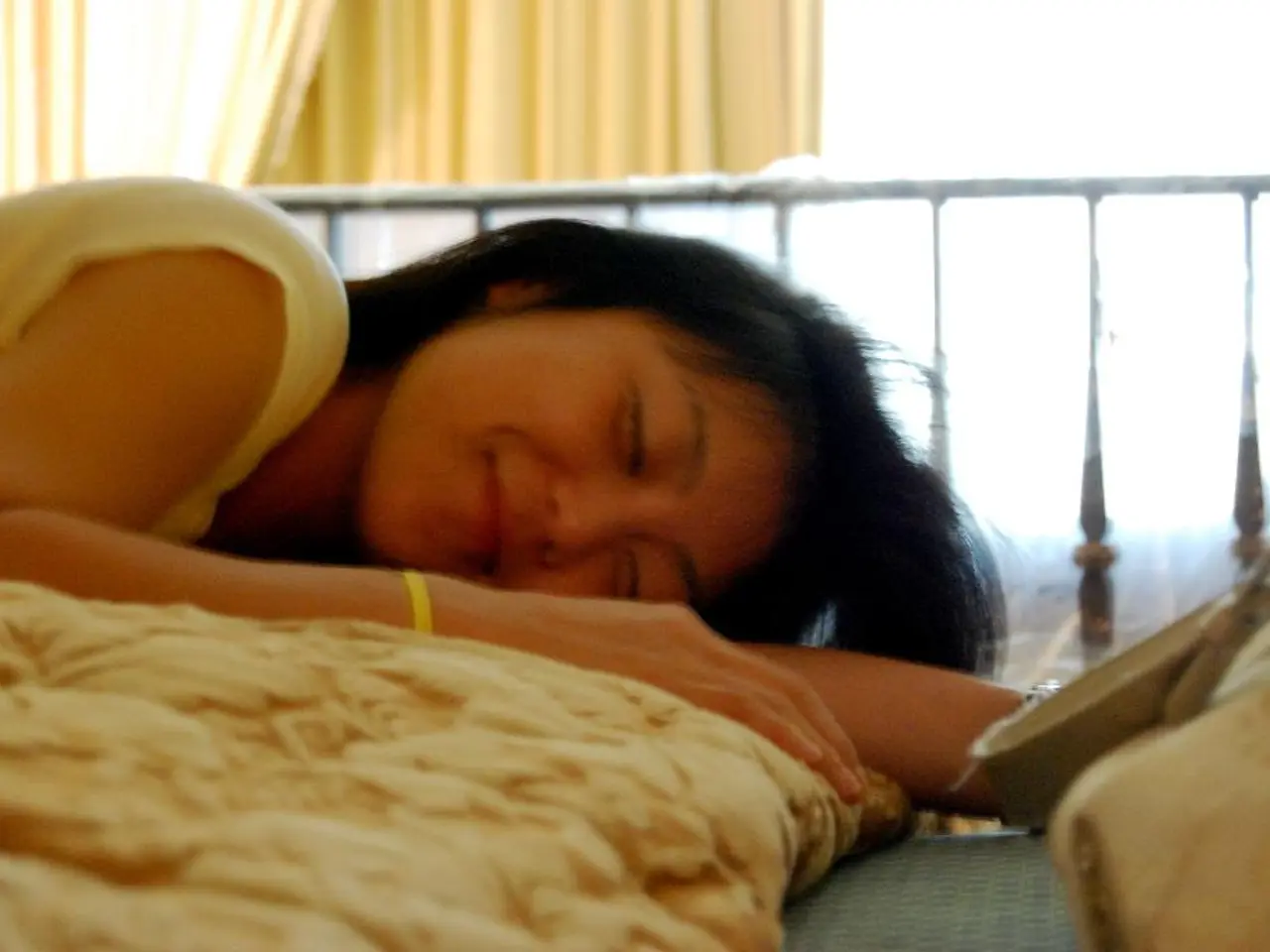Melatonin and Depression: Exploring the Intricate Connection
Melatonin, often referred to as the "sleep hormone", plays a vital role in regulating the sleep-wake cycle, also known as the circadian rhythm. Recent research suggests a complex but increasingly recognized relationship between melatonin and depression, with disruptions in the melatonin system implicated in the pathogenesis of depression.
Depression is often characterized by neuroinflammation and decreases in cytoprotective and antioxidant systems, where melatonin plays a regulatory role. The current understanding indicates that melatonin could potentially offer benefits for depression treatment due to its mood-regulating, anti-inflammatory, and sleep-improving properties.
Some research supports melatonin’s ability to reduce symptoms of depression and anxiety, possibly due to its regulatory effect on circadian rhythms and its neuroprotective, anti-inflammatory properties. Melatonin reduces pro-inflammatory cytokines and oxidative stress, which are linked to the neuroinflammatory processes observed in depression. Since melatonin regulates sleep-wake cycles, supplementation may help alleviate sleep disturbances common in depression, potentially improving overall mood and functioning.
However, it's crucial to approach melatonin use cautiously, ideally under medical supervision. This is due to potential side effects, drug interactions, and inconsistent supplement quality. Melatonin supplements vary widely in content and purity, especially in over-the-counter forms, which raises safety issues. High variability in doses can expose users to levels far beyond recommended amounts, increasing the risk of side effects such as grogginess, vivid dreams, or potential worsening of mood.
Moreover, while some studies are promising, the evidence for melatonin’s effectiveness specifically as a depression treatment remains inconsistent and less robust compared to established antidepressants. Melatonin is better supported for managing sleep disorders than depression alone.
Ensuring a comfortable sleep environment, creating a relaxing bedtime routine, and establishing a consistent sleep schedule can contribute to better sleep. Regular exercise, particularly during daylight hours, can help regulate the circadian rhythm and improve mood. Stress reduction techniques such as meditation or yoga may also be beneficial. Exposure to bright light, especially in the morning, can help regulate the circadian rhythm and improve mood.
It's essential to consult with a healthcare provider before starting any new supplement regimen or light therapy, especially when considering melatonin for depression treatment. Other natural supplements, such as St. John's Wort, SAM-e (S-Adenosyl methionine), and omega-3 fatty acids, have shown promise in managing depression. Some studies suggest that light therapy may be as effective as antidepressant medication for certain types of depression.
In conclusion, while melatonin holds promise as an adjunctive treatment for depression, more rigorous research is needed to confirm its efficacy and safety in this context. Patients should approach melatonin use cautiously, ideally under medical supervision, especially considering potential side effects, drug interactions, and inconsistent supplement quality.
- Mental health professional might recommend melatonin, known as the "sleep hormone", as it has shown potential benefits for depression treatment due to its mood-regulating, anti-inflammatory, and sleep-improving properties.
- The relationship between melatonin and depression is complex, with disruptions in the melatonin system implicated in the pathogenesis of mental disorders.
- While melatonin is better supported for managing sleep disorders than depression alone, other natural supplements like St. John's Wort, SAM-e, and omega-3 fatty acids have shown promise in managing mood disorders.
- To improve sleep quality, creating a relaxing bedtime routine, establishing a consistent sleep schedule, exercising regularly during daylight hours, and exposing oneself to bright light, especially in the morning, can be beneficial.
- If considering melatonin for depression treatment or light therapy, it's essential to seek advice from a healthcare provider beforehand, as these approaches may have potential side effects, drug interactions, and questionable supplement quality.
- Science continues to explore the complex relationship between mental health, sleep, and various factors, such as melatonin, stress, and light therapy, to enhance overall health-and-wellness and mental-health outcomes.




